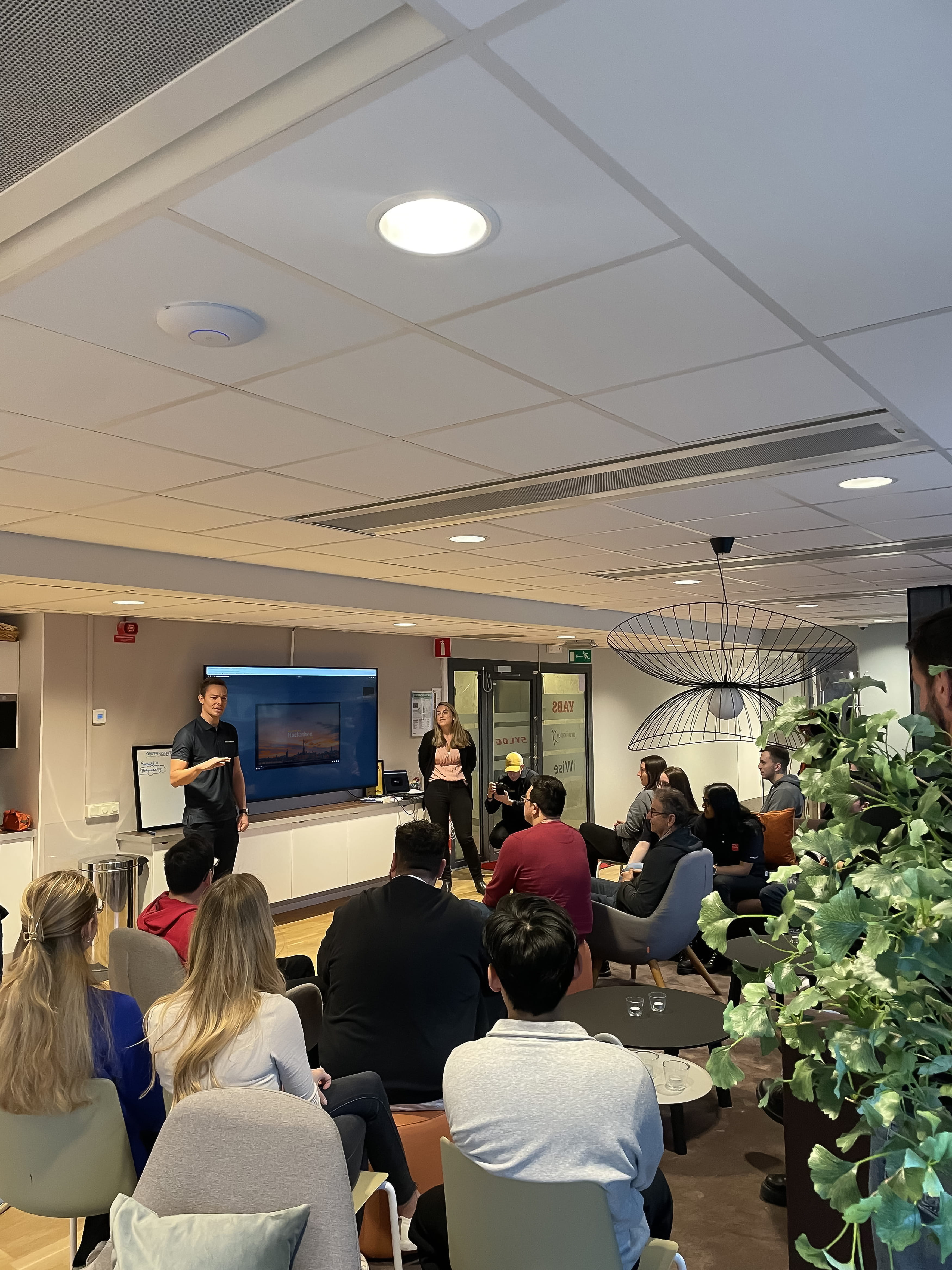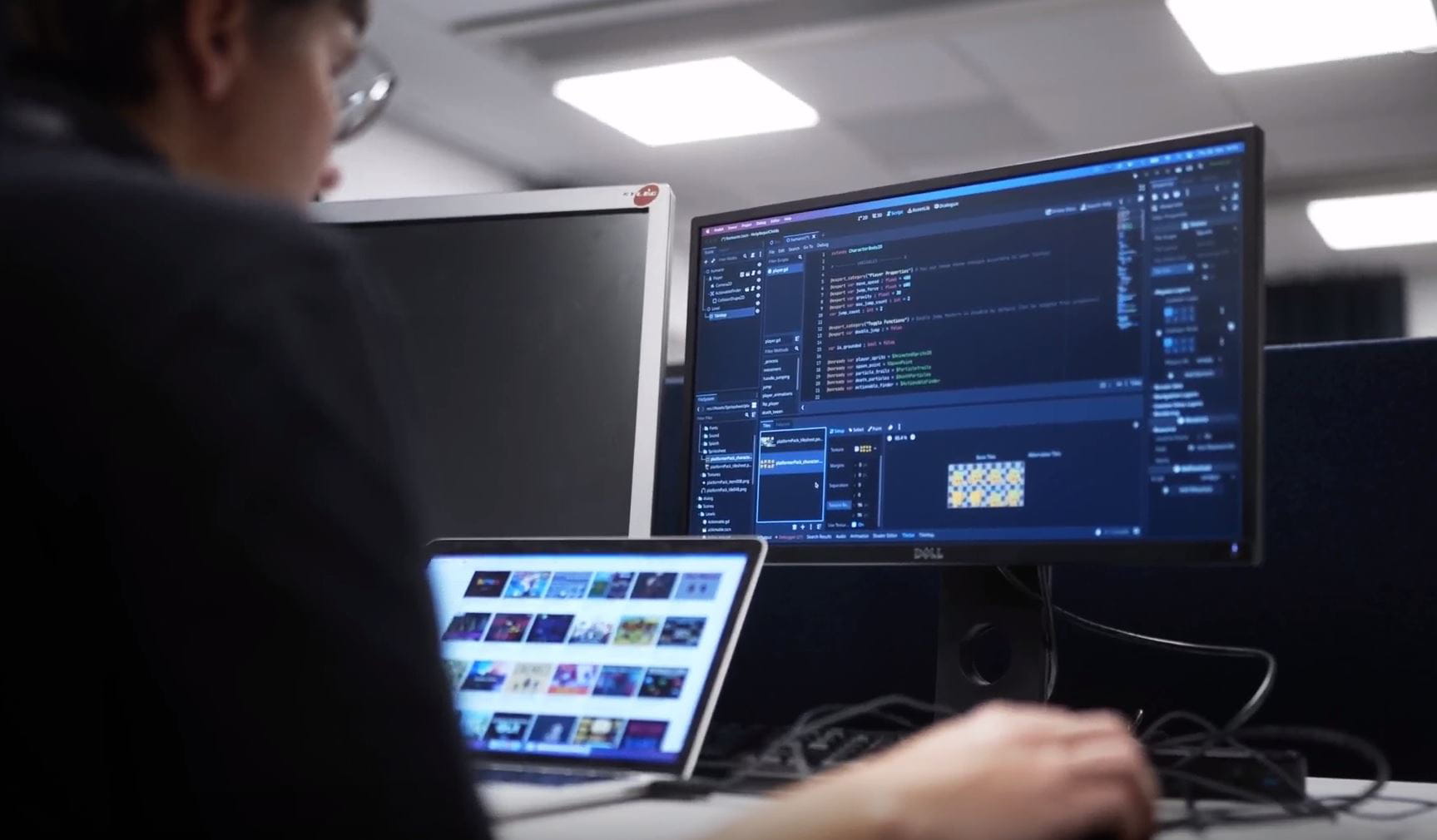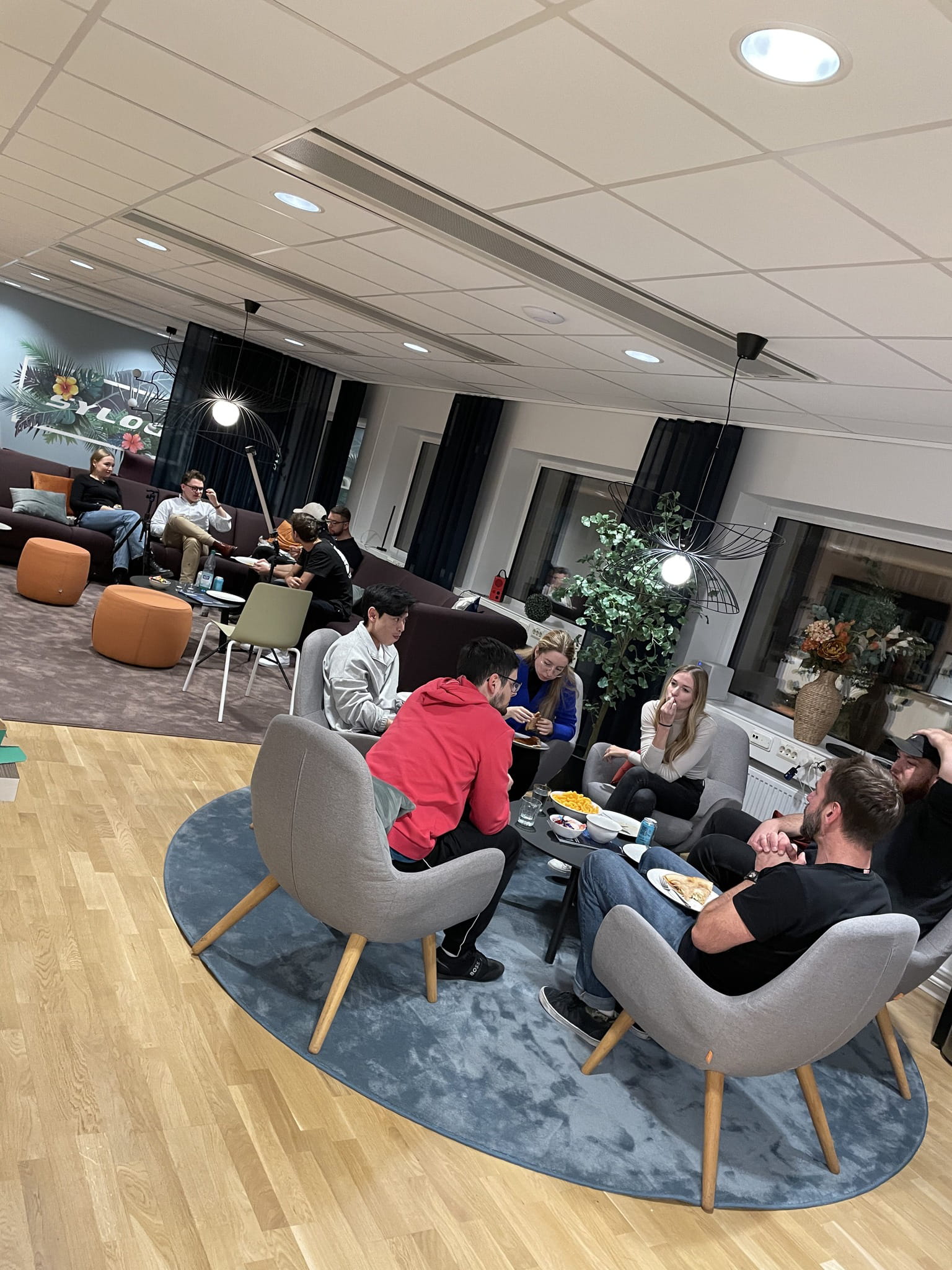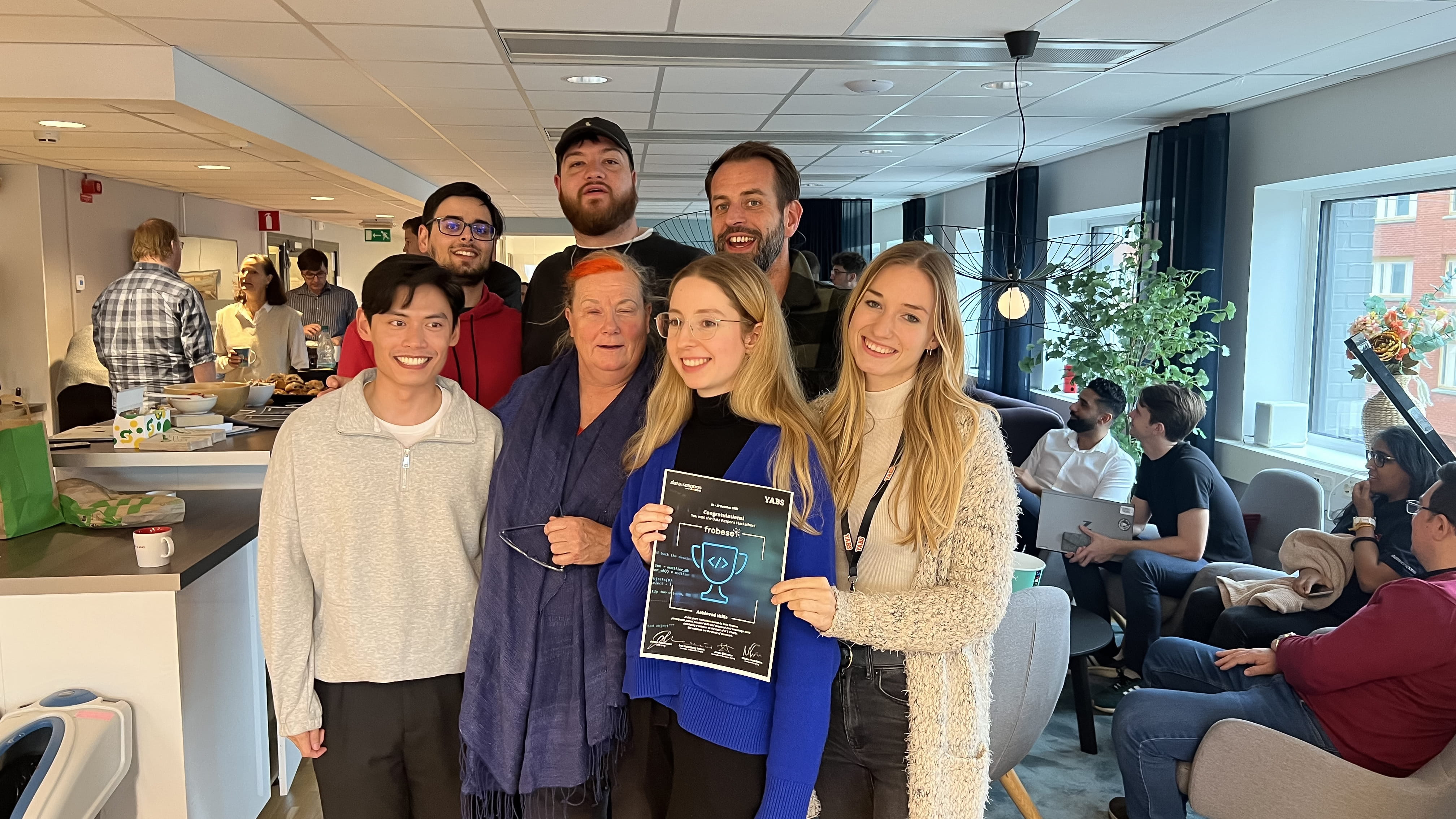Hacking Ways To Help Street Children In Nepal
Akkodis teams put their tech skills to good use in the annual Nordics Hackathon, with the goal of improving the lives of street children in Nepal.
7 minutes
12th of March, 2024
Akkodis tech innovations for humanitarian impact
How can technology change the lives of some of the world’s poorest children? At the annual Akkodis Nordics Hackathon, Akkodis tech experts from across the Nordics and Germany set out to come up with some answers.
Akkodis has been supporting the Gatubarn i Nepal (Street Children in Nepal) NGO for many years through its Enabling the Young initiative and dedicating the Hackathon to finding new ways to help this influential NGO was the next logical step
Eva Holmberg Tedert founded Gatubarn i Nepal in 2010 to help the thousands of homeless children in Katmandu and elsewhere in Nepal. Among other projects, the NGO supports three child help and care centers and finances the education of local health assistants, engineers, and teachers. It also assists local initiatives to combat human trafficking.
Holmberg Tedert was in Stockholm to blow the starting whistle for the , which took place in October 2023 at the Akkodis site in Stockholm.
“Please use your great technology skills to develop digital solutions to combat poverty, reduce trafficking, and enhance the lives of children in Nepal,” Holmberg Tedert told the six teams, before sending them off to their computers to begin an all-nighter. “You have 24 hours!”
Smart solutions for local NGOs: Akkodis Hackathon teams
Six teams from the Nordics and Germany – Team Stockholm 1, Team Stockholm 2, Team Ingolstadt, Team Munich, Team Leipzig and Team Hannover – took up the challenge.
Holmberg Tedert urged the 28 participants to think local, coming up with solutions that could be implemented by a small NGO run primarily by volunteers, and in a country where access to high-speed connectivity and complex technology–and even sometimes telephone services–cannot be taken for granted.
“Eva did a fantastic presentation of their work, it was really captivating,” says Madeleine Mellström from Akkodis Sweden, who organized the event with her colleague Maja Jonsson.
The six projects presented to the Hackathon jury after 24 intense and creative hours were as diverse as they were innovative.

Akkodis Team Ingolstadt’s Help Me Study App
The five young developers from Team Ingolstadt designed an app named “Help Me Study”, with which Nepalese schoolchildren can practice their English pronunciation. “The children learn English in school, but only written, not spoken English,” explains team member Moritz Reindl. “With the new app, they can use their mobile phone as a training tool for pronunciation, somewhat similar to the well-known Duolingo app.”
Help Me Study also has a “Help Me” functionality, as human trafficking and child prostitution are huge issues in Nepal. Children can push the “Help Me” button if approached by criminals, sending an alert to local police.
Akkodis Team Munich – The Street Children in Nepal Game
The Munich team also chose to develop a mobile phone app but with an altogether different focus. Their mobile game is designed for people in developed countries to raise awareness about Gatubarn i Nepal and attract donations to its work.
“We developed a small game showing the conditions many children live in,” says Vithya Jeyachandran from the Munich team.
“Online, we found a 2D game engine and a number of readymade design elements and combined them to create a game in which a Nepalese child is given a task. If the player completes the task, they move to the next level.”
The game consists of three levels. In the first, the child overcomes a number of challenges on their way to school, the next focuses on human trafficking and abuse, and the third level concentrates on the dangers around water supply and poor water quality.

Akkodis Team Stockholm 1– Professions guidebook
The app developed by the Stockholm-based team of five programmers was centered on donations—donations of knowledge, not money.
“Education is critical, and getting access to it is not easy in Nepal,” explains software developer Charlie Kotro. “For a child, finding information about what you can become when you grow up is difficult. Our idea was to create a database to which people can upload information about different professions to inspire the children to decide their future education.”
Given the unreliable connectivity in Nepal, the team went for a mobile app, through which users can download information when they have internet access for reading later.
Akkodis Team Stockholm 2 – Learning the basics of programming
The second Stockholm-based team also chose to focus on education, particularly programming. They are developing a gaming-based concept through which Nepalese teachers and schoolchildren can learn the basics of programming.
Akkodis Team Leipzig – NGO collaboration platform
The Leipzig team took a different approach. They looked at ways to improve internal collaboration inside the Gatubarn i Nepal organization and with other NGOs. They designed an open-source-based network management portal to optimize communication and collaboration, including functionality for social media post generation, resource management, and accounting.
Akkodis Team Hannover project – Digital Art Gallery for the Unseen
After 24 hours, at 10 in the morning on the 27th of October, the Hackathon jury arrived to see the six teams’ presentations and to select a winner.
The jury, consisting of Eva Holmberg Tedert from Gatubarn i Nepal, and Johan Jacobsson, Jonas Tillander and Niclas Fredriksson from Akkodis Sweden decided on the Team Hannover project named “Digital Art Gallery for the Unseen”.

The Akkodis Nordics Hackathon winner
Inspired by an art exhibition in Kathmandu in March 2023, showing artwork by children supported by the NGO, Team Hannover chose to create a digital platform. At the original exhibition, visitors and tourists could view and purchase the images. They could also be purchased through social media via direct message.
To make the artwork produced by the children more visible and accessible, the team decided to create a website where people can see and buy the images, with the proceeds going to the children and to the organization.
“We wanted to build a platform to promote the children and their creativity, while finding new ways to generate donations,” explains team leader Stephan Bogansky.
“In the beginning, our idea was rather huge. But, after talking to Eva, we decided to scale it down, to make it work within the scope of a small NGO, and to create something that would be useable in the short term, while allowing it to be expanded along the way.”
We took a few open source building blocks to develop the web application, which in short is a small content management system. It has a backend where you can upload the artwork and allow customers to buy it. The system is designed with simplicity and ease-of-use in mind, to enable it to be run by volunteers.
Manageability and easy implementation were two important factors in the jury’s choice of the Team Hannover project as a winner, Holmberg Tedert says.
“Many of the children we are working with have a creative streak. The Digital Art Gallery For The Unseen is an obvious way to promote their work, and in a format that is feasible for us. We can quite easily launch such a website, and I believe it has the potential to make a significant difference in our work.”
“It has been a real pleasure to witness the energy and dedication of the six Hackathon teams. I am deeply impressed by what they achieved in just 24 hours. Their energy was just incredible, and on behalf of Gatubarn i Nepal, I would like to express my gratitude for their incredible work and commitment,” Holmberg Tedert adds.
Bogansky‘s team is now looking at how to develop the project further into a finished product for the NGO to implement.

Digitalization and tech play a vital role in transforming future work and creating pathways for increased access to work. In North America, Akkodis Academy has developed the Military Spouse Reskilling Initiative, a scholarship program to re-skill and propel military spouses to work.
"Technology is rapidly growing and it affords the opportunity to align to the military spouse lifestyle. Akkodis Academy is focused on reskilling and upskilling individuals in IT and engineering to help them contribute to the Smart Industry of tomorrow," says Marcia Custodio, Director of North American Sales, Akkodis.